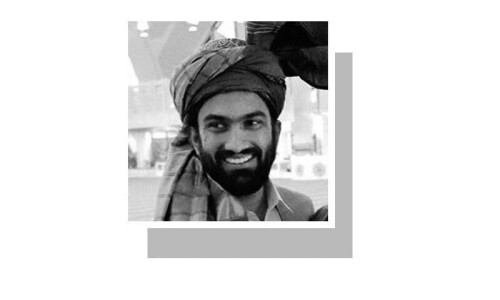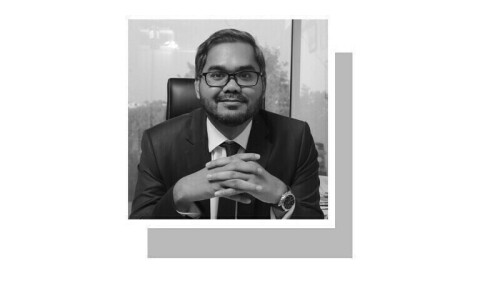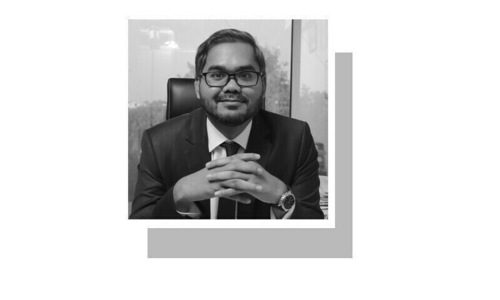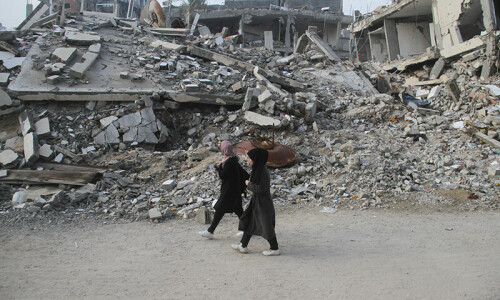 The slide of poor individuals and communities towards extreme poverty can be prevented through transformational changes or rather a permanent solution.
The slide of poor individuals and communities towards extreme poverty can be prevented through transformational changes or rather a permanent solution.
All poverty alleviation strategies should be designed to lessen insecurity and vulnerability of the poor. There is need to create enabling environment for them to build up their assets including the human, physical and social capital, the absence of which keep the poor entangle in circle of poverty. Instead of focusing on transfer of income / relief to poor through various safety nets, the governmental efforts should be directed at removing structural constraints that impede capital formation in the hands of poor.
The financial and capital markets have registered a sustained growth over the last five years, but due to lack of poor-friendly policies, their inability to save, borrow and invest is thus impeded. The absence of disaster management technologies in case of natural calamities continue to add to miseries of the poor by destroying their physical assets and impairing human capital in one go.
Despite sizable increase in allocations for social sector development, tangible improvements are not visible in education and health care status which are the prime requisites for poverty alleviation. The weak institutional framework at all government tiers and a lack of an equitable society denies an environment and opportunities for the disadvantaged segments of population to share resources and add to their human and physical assets.
It is essential that the poor are moved to a level where they are no longer vulnerable to further poverty due to shocks arising from natural disasters, illness, overall temporary slow down in economy and drastic policy change like embarking on structural adjustment programmes resulting in unemployment as has been experienced in recent past in various public sector entities.
To tackle the issue, it is imperative on the part of new democratic government which is in the offing to direct all economic, social and political interventions (especially gender sensitised) for development of human capital enabling the poor to build up their physical and monetary assets to a level where they can absorb all shocks arising from both man made and natural disasters.
Universally, assets ownership by poor is being recognised as an integral link for sustained and broad based economic growth as it is the most secure and ensured way to achieve social justice and equity. In this regard performance based budgeting in public health and education, promotion of microfinance banking with country-wide outreach, poor friendly tax and tariff structure and flexible labour laws can facilitate assets building of poor to a desired level.
In this context, it must be a focal point that in the process of any future structural adjustment programme to be carried on, welfare of both skilled and unskilled workers be given top priority and also improve the labour and management relations which are essential for sustained growth of an organisation.
Further, lack of access of poor to formal credit market, apart from hampering his / her economic pursuits adversely impact basic social necessities. Lack of access to institutional credit combined with non-availability of safety nets forces poor to forego their business and compelling basic social needs like education of children and health care. Resultantly, not only poverty persists among such deprived groups, but also it has given rise to use of child labour in all business enterprises, negating the desired environment for development of human capital.
Lack of accessibility to conventional institutional credit is mainly due to poor inability to offer collaterals and also fear on the part of the poor that in case of any default, their meagre assets pledged with the bank may be seized by the bank. Hence to motivate them to avail institutional credit, network of micro finance banks / institutions be expanded at a faster rate.
Moreover, weak legal and institutional framework is also responsible for the reluctance on the part of financial institutions to finance, especially the rural poor. It is weak property rights and poor contract enforceability that constraint financial institutions activity in this area.
Lack of health care programmes is responsible for high mortality rate at children and their mothers. Apart from low budgetary allocations for health, it is poor delivery of service and lack of supervision and monitoring at all levels which is responsible for growing health hazards particularly among poor segments of population.
It is also low wage structure of unskilled labour and particularly of home-based industry comprising mostly of women. Food inflation in recent years does not permit this class to have at least one square meal a day containing required calories or proteins. Unfortunately, for both urban and rural poor, the food security challenge is growing, hence their physical health and in turn their working efficiency is continuously deteriorating.
Poverty reduction strategy for rural areas in particular must be directed towards bringing land reforms. For rural poor ownership of land, provides most realistic opportunity to improve their living conditions and further build up their physical and monetary assets leading to more opportunities for education and health care of family members.
Assets of the poor particularly in the form of landed property and livestock etc are commonly found at stake due to absence of arrangements for eradicating environmental hazards and disaster management system in case of natural calamities. A recent news item appearing in newspapers reported death of large number of cattle in Port Qasim area (Karachi) due to discharge of toxic waste from a fertiliser plant located near the area.
Apart from that, small factories in the surroundings drain their waste directly into the sea creating more hazards to human and cattle life. For that corporate sector comply with laws and regulations and other requirements relevant to development and implementation of environment management system so as to preserve human life and assets. It is also a high time that emerging concern for global warming be taken in its true perspective. Lack of water and energy, which is already a major issue is likely to worsen. The development programme should be poor- friendly.














































Dear visitor, the comments section is undergoing an overhaul and will return soon.